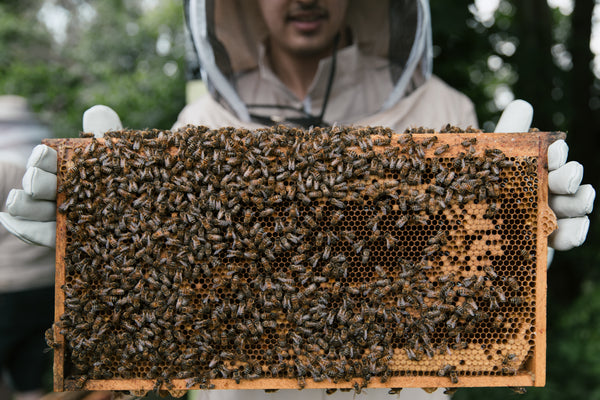Today, there are around 20,000 bee species known worldwide. Of those species, 4000 of them have been found in the US, and over 250 have been found in the U.K. As if 20,000 was not a lot, it is said that there are many more species to be discovered!
Now that we have brushed the surface of some of the different families and species of bees, we are excited to announce that we will be diving deep into the details of certain species of bees each month! Stay tuned for this month’s pick, ( Hint, they are adorable!)
| Family | Notes |
|---|---|
| Apidae |
Family including bees such as
|
| Andrenidae | A large family with many species commonly known as mining bees. |
| Megachilidae | Contains most of the solitary bees, such as mason bees and leafcutter bees. |
| Colletidae |
Large family of around 2,000 species includes
|
| Halictidae | Commonly referred to as sweat bees. They are small, dark in color, but have colored marks of green, yellow, or red resembling sweat marks. |
| Melittidae | A small family found in Africa containing around 60 species. |
| Meganomiidae | Also found in Africa, this is a small family of around 10 species. |
| Stenotritidae | Found primarily in Australia, this is a family with 21 species. |
| Dasypodaidae | Another small bee family found in Africa, containing around 100 species. |





